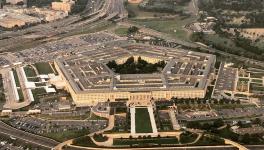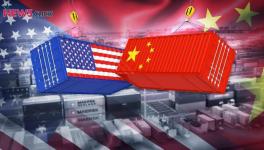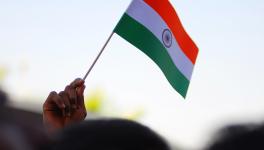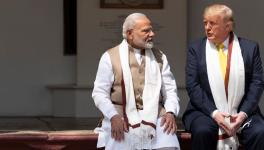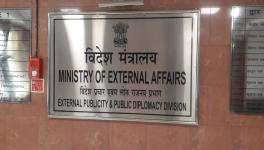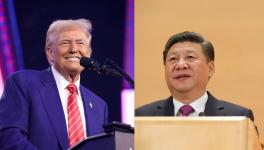A Resounding Victory Amidst Choppy Waters
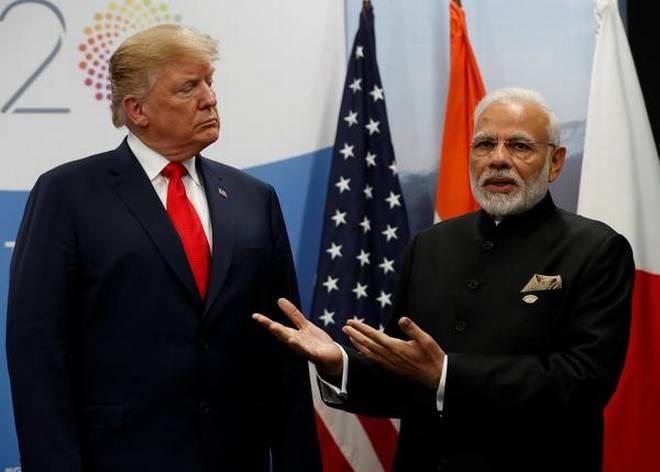
Image Courtesy: The Hindu
The victory of the Narendra Modi juggernaut, which surpassed previous records to give the ruling Bhartiya Janata Party (BJP) an overwhelming win in the elections for the 17th Lok Sabha, is a first in 50 years. The victory speech of Prime Minister Narendra Modi spoke of moving ahead “taking everyone with us, even our opponents”. But after a divisive and polarising election campaign, the country surely needs time to heal the deep fissures that have surfaced in our society. One can only hope that the victorious party now lives by this creed, which it did not succeed in doing with its slogan of “sabka saath, sabka vikas”. But if ever the words spoken by the PM mattered -- and one hopes these do – these should be practiced here and now because the challenges facing the country are enormous. While domestically India has got a coalition government led by a strong party, several challenges lie ahead, both at home and abroad.
While the causes behind domestic trouble spots differ from one another, these are still critical because much of the country’s energy and resources get expended in treating them as simply a matter of military suppression rather than in need of urgent political resolution. That is one part of the problem. The need for inclusive development for a country as large and diverse as ours and uplifting millions from penury, deprivation and discrimination is by far a bigger challenge. Rampant unemployment, lack of quality jobs, tackling the agrarian crisis etc., remain our worst features. Without addressing these, the life and liberty of citizens will remain imperilled. And no matter how strong a country’s military, if its people remain mired in distress, it makes the country weak.
However, it would be one thing for any government to carry out the task of lifting the country if international issues had remained benign. Since they are not, the breakdown of the global order and likelihood of conflict in our immediate or extended neighbourhood reaching our shores have risen. This will act to divert the government’s attention and impact developments at home.
The US-led coalition has imposed unilateral sanctions on Iran, which has affected India directly. What no one can rule out is today is that Iran does not meet the same fate as the ones brought about by US-led aggression in Afghanistan, Iraq, Libya and tried hard to achieve in Syria. The huge deployment of the US naval force in and around the Strait of Hormuz, through which 35% of the world’s oil travels, is a tinder box that can be set alight by mistake or design. Iran being part of India’s extended neighbourhood and India’s dependence on imported oil, can impose a high cost on India. The cost will include having to pay higher and higher crude oil price as the conflict escalates and will also impact the Indian diaspora in Gulf states, who may suffer if the conflict turns bloody.
Afghanistan, too, faces an uncertain future with the US determined to pull out its troops from there and engaged in direct talks with the Taliban, much to the displeasure of the Kabul government they had for long propped up and swore by. With India’s recent move not to insist on centrality of the Kabul regime in any deliberation on Afghan settlement, it is more and more likely that a Taliban-led government may not be far.
What will happen to all the foreign fighters, will they be disarmed or re-surface in either/or central and South Asia, is anyone’s guess. The emergence of a very real threat from Daesh elements in South Asia, after the devastating bomb blasts in Sri Lanka, has been noted by strategic experts. The fear expressed over the emergence of Daesh elements in Jammu and Kashmir, Bengal/Bangladesh and South India is something no one can ignore. Here the external and internal faultlines coalesce. This makes Pakistan India’s most intimate enemy, a factor to reckon with. Until recently, India refused to have any direct dealing with Taliban, although Russia, China, Iran and most of all, the US did not waste time in engaging with them. Will the new Indian government now engage with Taliban? And even more urgently with Pakistan?
‘Teaching-Pakistan-a-lesson’ was a strong feature of the ruling party’s poll campaign in India. Will the government shift course or will there be renewed belligerence in relations? A government with such a strong mandate can certainly ease tensions with Pakistan if it so desires. If relations continue to plummet and there is no possibility of rapprochement anytime soon, then India may manage the situation in Jammu & Kashmir but can they do the same in Afghanistan? So, there are uncertainties to overcome where Pakistan is concerned.
By far the biggest external issue facing India is on account of the US-China trade war, which is less trade-related and is meant more to stymie China’s steady march as an economic and military power. China being our immediate neighbour, with which we share an unsettled border, a conflict between US and China will see India hard-pressed to stay unaffected and neutral. There is no gainsaying that India cannot afford to get dragged into fighting another country’s war.
There are many in India who believe that the US-China trade tiff will benefit India. But that’s more wishful thinking than a ground fact. India’s capacity to replace Chinese hi-tech exports to the US, for instance, is small, at least for the years to come. Also, India finds it hard to replace Chinese imports of consumer goods because of shrinkage in India’s mass consumer industry. But it’s not trade but India’s burgeoning military ties with US that raises alarm. The manner in which Turkey, led by a strong leader and government, has seen the lira take a hit as the US increases the pain that Turkey experiences over the standoff over its decision to buy Russian S400 and sees its investment of $1.2 billion in making parts for F-35 fighter jet, frozen. This is the length to which the US can go to get its ally to toe its line.
So far the Indian government has persisted with befriending both the US and China (not to forget Russia). But as the conflict escalates, India will come under tremendous pressure from the US. Consider this. Two Indian naval ships -- INS Kolkata and INS Shakti -- recently visited Vietnam, China and South Korea, and then joined group sail with naval ships from the US, Japan and the Philippines in South China Sea from May 3-9.
But with the US determined to go after China, there will be a time when India will be asked to take sides. The way Google meekly surrendered to US’s call to snap links with Chinese telecom giant, Huawei, not only makes it clear that these companies, for all their projection as being part of ‘global commons’, are anything but that and can turn into ‘national’ corporations for the asking.
Indian telecom companies which were looking to buy Huawei 5G telecom equipment because of its superior technology and cheaper price, in contrast to other 5G competitors, will have to think twice before they do so. US pressure may not have worked everywhere to shut out Huawei, but it has managed to ensure that its allies in Europe and elsewhere toe its line. Others who do not, can expect US retribution.
India’s vulnerability to US arm-twisting need not be exaggerated, nor should it be under-estimated. It is reflected in India’s decision to not impose retaliatory higher duties on import of US goods although the US has since last year imposed higher duties on select Indian goods. Besides, India lacks China’s deep pockets backed by a robust industrial hi-tech sector and a huge domestic market.
Precisely keeping in mind turbulence in India’s neighbourhood and the likelihood of the conflict becoming worse, makes it all the more important that at home India can ensure peace and harmony, a pre-condition for tackling external challenges and threats and fulfil the tasks at home.
Will a strong government change the course from practicing military suppression at home with political initiative? The mandate this government enjoys for making India strong, certainly requires that the government shed harsh measures at home, because the country cannot afford being distracted by internal conflicts when it faces immense challenges on the external front. It is obliged to better the lives of citizens and protect our constitutional freedoms.
Time will show whether this is wishful thinking unrelated to the reality that we confront. But hope does not die because dreams get shattered. So, here’s hoping for the best, when world around us is transforming.
Get the latest reports & analysis with people's perspective on Protests, movements & deep analytical videos, discussions of the current affairs in your Telegram app. Subscribe to NewsClick's Telegram channel & get Real-Time updates on stories, as they get published on our website.









